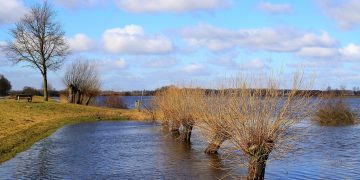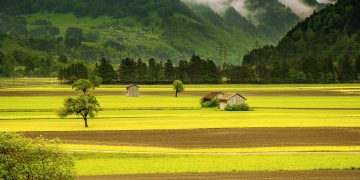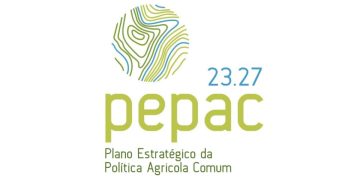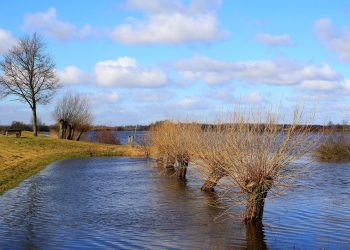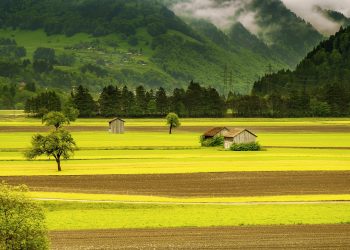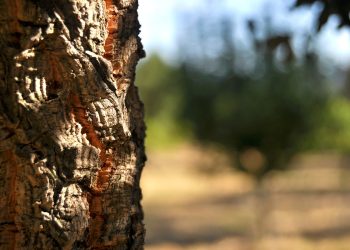Asier Larrañaga Ochoa de Eguileor, a wildfire analyst at the Catalan Fire and Rescue Service, experienced the Solsonès wildfire in Spain in 1998 and still remembers it as a revelation.
“I had basic fire theory training, but what I saw on the ground didn’t match any of it. Fires were jumping over valleys. Firebreaks were useless. That’s when I realised we were facing a different kind of threat.”
Subsequent wildfire records confirmed his observations. From Greece to Chile, wildfires are burning faster, more often, and more unpredictably than ever before.
According to the European Commission’s knowledge service, the Joint Research Centre, more than 60 000 forest fires burn on average half a million hectares in the EU every year, causing human casualties and economic losses estimated at around €2 billion.
The scale and unpredictability of these fires have exposed the limits of traditional firefighting methods. That is where an EU-funded initiative named FIRE-RES comes in with its cross-sectoral approach to worsening wildfires.
A new term – “extreme wildfire events” – denotes blazes that defy suppression efforts, create their own weather, and spread with frightening speed. Meeting this challenge requires not just new technology, but a complete reimagining of how we prepare for and respond to fire.
A new approach: reshaping landscapes
Coordinated by the Forest Science and Technology Centre of Catalonia, the FIRE-RES collaboration has received €20 million to build fire-resilient landscapes across Europe and beyond until the end of 2025. It brings together researchers from Spain and Greece, plus eight other EU countries, Chile and Norway.
“By pooling our knowledge, we’re building a new European culture of fire safety.
Dr Antoni Trasobares, the director of the Forest Science and Technology Centre of Catalonia, with a PhD in forest science and economics, coordinates the researchers’ work.
“We need to work with what we can control. We can’t change the wind or the heatwaves, but we can reshape our landscapes to reduce the chance that these fires spiral out of control,” said Trasobares, who has more than two decades of experience in forest management and international research coordination.
FIRE-RES operates 11 Living Labs, or open-air testing grounds, in as many countries, including two joint labs in Germany/the Netherlands and Norway/Sweden. Firefighters, researchers, farmers and local communities are trialling firefighting innovations, from drone-based early warnings and fuel mapping tools to prescribed burns and fire-resistant building materials.
Recognising that no single solution fits all, the project partners tailor their innovations to the unique needs of each region. That might mean protecting urban-wildland borders, using advanced weather data from drones or satellites that monitor vegetation health and fire spreads in real time, or conducting controlled burns.
Another approach combines trees and grazing animals, reducing the overcrowding of trees while encouraging sheep, goats and cattle to feed on grass, shrubs, and underbrush that can act as fuel for wildfire.
Innovation and tradition on the fire line
In Catalonia, firefighter technicians like Laia Estivill Gonzalez from the specialised wildfire GRAF team are already using FIRE-RES data tools to forecast fire behaviour and train commanders.
“We’re exchanging knowledge with firefighters from the Netherlands and Chile. This shared learning helps us – and them – respond faster and smarter,” she said.
“FIRE-RES brings science and local knowledge together, especially in rural areas where people have long coexisted with fire, but now feel overwhelmed.”
Elsewhere, communities in Sardinia and Aquitaine are reviving traditional practices like goat grazing and controlled burns to reduce potential fuel for the flames. In Galicia, locals learn fire safety through the Fire-Safe Villages initiative that combines community engagement, land management and innovative training.
These steps lower fire risk and reconnect people with their landscapes, creating jobs and restoring balance.
One particularly creative idea has taken root in the vineyards – the FireWine label. Firefighters partner with wineries to restore abandoned agricultural land, reducing fire risk and producing marketable, resilient products.
“We need economic drivers that align with fire prevention,” said Trasobares. “This protects territory and livelihoods at the same time.”
Rethinking fire science
Marc Castellnou, a wildland fire strategy analyst in Catalonia, warned that today’s fires defy long-held assumptions.
“We used to believe wind- and plume-driven fires were distinct phenomena,” he said, referring to two different fire types, one spread mainly by wind, the other by the fire’s own intense heat. “But in 2012, during the La Jonquera fire [in Catalonia], we saw both behaviours simultaneously. That changed everything.”
His colleague Larrañaga has since analysed fires across Spain, Portugal and, most recently, Greece. Reconstructing the spread of the 2023 Alexandroupolis fire – Europe’s largest ever wildfire that devoured 94 000 hectares – was a sobering experience.
“Fire is part of nature. We need to stop seeing it only as an enemy and start managing it intelligently.
“These are sub-humid Mediterranean forests. We never thought they could sustain fires burning at 5 km/h for over 12 hours. But they did,” he said. “And similar landscapes across Europe could go the same way under the right conditions.”
He warned that focusing solely on suppression reflects a misunderstanding of the problem.
“Technology is important, but landscapes and land use history determine fire behaviour. If we don’t integrate wildfire risk into agriculture, forestry and urban planning, we’re heading toward a dead-end.”
The new EU approach seeks to bridge that gap between science, policy and everyday practice. Its Integrated Fire Management approach takes into account the social, economic, cultural and ecological dimensions of fire.
“Fire is part of nature,” said Trasobares. “We need to stop seeing it only as an enemy and start managing it intelligently, like indigenous communities have done for centuries.”
The FIRE-RES team has presented their work to the European Commission and European Parliament, with a clear message: resilient landscapes will need to be diverse, managed and shaped by communities.
The cross-border initiative also shows the added value of transnational collaboration.
“Wildfire is not just a national issue,” says Estivill. “By pooling our knowledge, we’re building a new European culture of fire safety, one that’s proactive and not reactive.”
Listening to people on the ground
Trasobares pointed out that wildfire risk is not just an environmental issue.
“It’s tied to agricultural subsidies, rural depopulation, forest ownership, even education. Our goal is to bring all these sectors into the same room.”
The research team also listens to people on the ground – firefighters, landowners and municipal leaders.
“We’re not just sharing innovations – we’re shaping them together. That builds trust and lasting change,” said Estivill.
With the project set to end in December 2025, the team is already planning the next phase: transitioning to a permanent knowledge and action hub.
“The science is solid, the tools work, and the communities are on board,” said Trasobares. “Now we need the political will – and the funding – to scale it up.”
With science, innovation and community at the heart of the solution, Europe is taking bold steps to outpace the wildfire threat.
Research in this article was funded by the EU’s Horizon Programme. The views of the interviewees don’t necessarily reflect those of the European Commission. If you liked this article, please consider sharing it on social media.
O artigo foi publicado originalmente em Horizon, the EU Research and Innovation Magazine.

